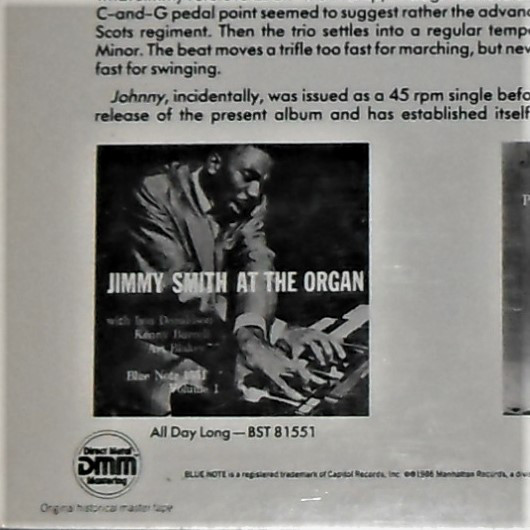Table of Content
The melody was previously published around July 1, 1863, as the music to the Civil War drinking song "Johnny Fill Up the Bowl". A color-illustrated, undated slip of Gilmore's lyrics, printed by his own Boston publisher, actually states that "When Johnny Comes Marching Home" should be sung to the tune of "Johnny Fill Up the Bowl". The original sheet music for "Johnny Fill Up the Bowl" states that the music was arranged by J.

A rendition by Georges Delerue was used alongside Jewish folk song Hava Nagila in the 1990 movie Joe Versus the Volcano played it at 1 hour 20 minute mark. Some later recordings end each verse with "And we'll all feel glad when Johnny comes marching home." In a John Ford Western, the last line was changed to "And we'll all raise hell when Johnny comes marching home."
Die Hard (Johnny Comes Marching Home)
A French version "Johnny Revient d'la Guerre" was recorded by Bérurier Noir, on the album Macadam Massacre . The tune of the song was used for the song “Brave Sir Robin” in the 1975 film Monty Python and the Holy Grail. A modification of the tune was used in Stanley Kubrick's 1964 film Dr. Strangelove during the Bomb Run sequence. English pop singer Adam Faith sang a version titled "Johnny Comes Marching Home", used over the opening and closing title credits for the British crime thriller Never Let Go .
Its first sheet music publication was deposited in the Library of Congress on September 26, 1863, with words and music credited to "Louis Lambert"; copyright was retained by the publisher, Henry Tolman & Co., of Boston. Why Gilmore chose to publish under a pseudonym is not clear, but popular composers of the period often employed pseudonyms to add a touch of romantic mystery to their compositions. The Dropkick Murphys recorded their own version of the song on their 2007 album The Meanest of Times, titled "Johnny I Hardly Knew Ya", using old Irish lyrics to the song's beat. Listen to Die Hard song in high quality & download Die Hard song on Gaana.com. Operatic singer Gloria Jean also joins in with them in her more demure way.
"Johnny Fill Up the Bowl"
"Johnny Fill Up the Bowl", which provided the tune for "When Johnny Comes Marching Home", was a topical drinking song that commented on events in the American Civil War. It was frequently refitted with new words by soldiers and other publishers. Our fourth CD features the most important Civil War classics, along with some of the more obscure songs plucked from the archives. The 2015 film Girls und Panzer der Film has an orchestra version play at the appearance of a T28 Super Heavy Tank.
The Polish band Ludola recorded a Polish version of the song with modified lyrics in their album "Przedwiośnie". "When Johnny Comes Marching Home" is also sung to the same tune as "Johnny I Hardly Knew Ye" and is frequently thought to have been a rewriting of that song. However, "Johnny I Hardly Knew Ye" was not published until 1867, and it originally had a different melody. This song is generally credited to the Union Army bandmaster Patrick S. Gilmore, who published it in 1863 under the pseudonym ‛Louis Lambert’.
When Johnny Comes Marching Home (
It is similar to the Irish antiwar song “Johnny I Hardly Knew Ye”, which is presumed to be the original on the basis of oral evidence, although no published version is known to pre-date “When Johnny Comes Marching Home”. Gaana offers you free, unlimited access to over 30 million Hindi Songs, Bollywood Music, English MP3 songs, Regional Music & Mirchi Play. Connect and share knowledge within a single location that is structured and easy to search. Stack Exchange network consists of 181 Q&A communities including Stack Overflow, the largest, most trusted online community for developers to learn, share their knowledge, and build their careers.

Quite a few variations on the song, as well as songs set to the same tune but with different lyrics, have appeared since "When Johnny Comes Marching Home" was popularized. The alleged larcenous tendencies of some Union soldiers in New Orleans were parodied in the lyrics "For Bales", to the same tune. A British version appeared in 1914, with the similar title, "When Tommy Comes Marching Home". The 1880 U.S. presidential election campaign featured a campaign song called "If the Johnnies Get into Power," which supported the Republicans James A. Garfield and Chester A. Arthur against the "Johnnies" (Democrats Winfield S. Hancock and William H. English). The lyrics to "When Johnny Comes Marching Home" were written by the Irish-American bandleader Patrick Gilmore during the American Civil War.
Allan Jones and Jane Frazee also sing a couple of wonderful love duets here. Then there's the luminous and exciting charm of the Phil Spitalny and his "Hour of Charm" All-Girl Orchestra with Evelyn and her Magic Violin. Also, The Four Step Brothers do tap dance up a storm with their athletic spins and somersaults. Never mind the story which relates to the World War II period, just enjoy the variety of musical performances in When Johnny Comes Marching Home. P.S. The print I saw had the final number in washed out tones with the volume a little lower though you could still hear a little clearly even then. In addition to that its military march style fits to the military background and demeanor of the bad guys.

Another version was released as a single, reaching No. 5 in the UK Singles Chart. The children's songs, "Ants Go Marching", or "Ants Go Marching One By One" and "The Animals Went in Two by Two" ("Into the Ark") re-used the tune and the refrain. You may also know this song for its use as a nursery rhyme, as it's the tune of “The Ants Go Marching One By One” (Hurrah! Hurrah!) and “The Animals go in Two by Two”. It was also sung to remember fallen family members - something Simon would have a connection to. A version was made for the 1995 movie Die Hard with a Vengeance by Michael Kamen.



